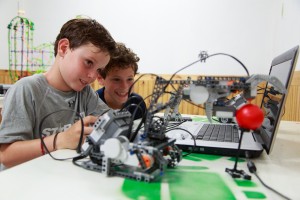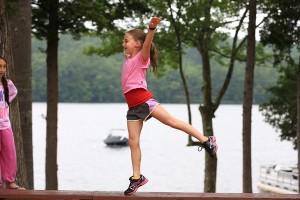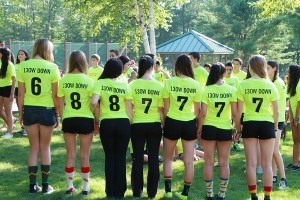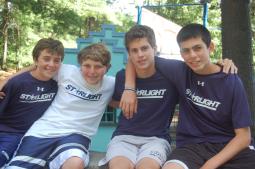 March is here, which means spring is just around the corner. More importantly, summer is only a few months away, which means it’s time to begin checking off that annual camp preparation list. No doubt, the idea that it’s time to begin thinking about summer is a welcome respite for many following a winter that regularly included terms such as “polar vortex.” So whether you’re preparing your children for their first summer at camp, or are still thawing out after a frigid winter, here are five things to think about as the snow begins to melt, temperatures begin to rise and vegetation blooms:
March is here, which means spring is just around the corner. More importantly, summer is only a few months away, which means it’s time to begin checking off that annual camp preparation list. No doubt, the idea that it’s time to begin thinking about summer is a welcome respite for many following a winter that regularly included terms such as “polar vortex.” So whether you’re preparing your children for their first summer at camp, or are still thawing out after a frigid winter, here are five things to think about as the snow begins to melt, temperatures begin to rise and vegetation blooms:
1.) Order camp clothes. Some camps feature catalogues and websites that cater to supply lists and sell logo merchandise. Although most camps do not require parents to order supplies and clothing from these catalogues, a few items are never a bad idea, particularly for children who intend to be part of sports teams. Also, camps sometimes require children to wear a specific colored logo shirt on certain occasions, such as out of camp trips. These clothing catalogs are the best resources for these items.
2.) Start talking about camp. For returning campers, chances are that they’ve never completely stopped talking about it. It’s good, however, to begin preparing first time campers a few months ahead of camp so that they are not completely overwhelmed when departure time for camp actually arrives. For all campers – returning or not – it’s good to set some goals for the summer. Some parents find that their children are a step ahead of them when it comes to goal setting, while other campers need a bit of assistance with organizing their thoughts and prioritizing. Either way, it’s good to begin a dialogue now so that you and your children have time to think about expectations for the summer.
time campers a few months ahead of camp so that they are not completely overwhelmed when departure time for camp actually arrives. For all campers – returning or not – it’s good to set some goals for the summer. Some parents find that their children are a step ahead of them when it comes to goal setting, while other campers need a bit of assistance with organizing their thoughts and prioritizing. Either way, it’s good to begin a dialogue now so that you and your children have time to think about expectations for the summer.
3.) Begin stockpiling. Some parents actually pull out camp duffles and begin packing in the early spring while others just clear off a shelf in a closet and begin picking up basic supplies such as sunscreen, shampoo, and socks whenever they are out shopping. Gradually building a stockpile prevents that last minute scramble that inevitably ends in a phone call either from or to the camp about forgotten items.
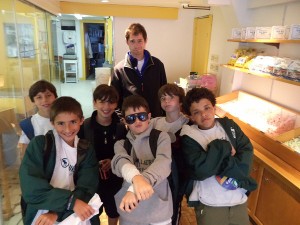 4.) Schedule pre-camp checkups. This is particularly crucial if your child’s pediatrician tends to be one that is perpetually booked and scheduling appointments a month or two into the future. Camps are safety focused, and it’s is very important that they understand each and every camper’s medical needs and limitations. For liability reasons, they also need medical and insurance information prior to being able to permit campers to participate in certain activities, such as out of camp trips. Also, be sure to talk to your child’s doctor about any medications that will be necessary for the summer.
4.) Schedule pre-camp checkups. This is particularly crucial if your child’s pediatrician tends to be one that is perpetually booked and scheduling appointments a month or two into the future. Camps are safety focused, and it’s is very important that they understand each and every camper’s medical needs and limitations. For liability reasons, they also need medical and insurance information prior to being able to permit campers to participate in certain activities, such as out of camp trips. Also, be sure to talk to your child’s doctor about any medications that will be necessary for the summer.
5.) Complete paperwork. Camps mail or make necessary forms available online to parents around this time of year. The forms may include information about trips, interests, goals, children’s personalities, etc. Although the purpose of the paperwork may not always be clear, camps put a lot of thought and consideration into the information they request parents to provide, and that information is crucial to facilitating a successful summer for campers. Since this task can seem daunting in the midst of those last minute preparations just before camp, it’s a good idea to set aside a block of time early in the spring to complete forms.

 570-798-9831
570-798-9831

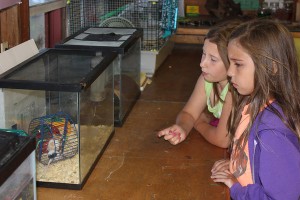
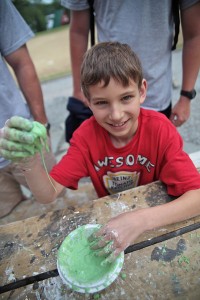
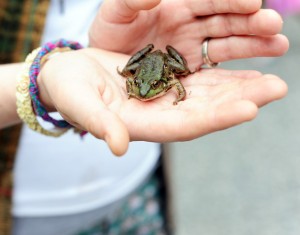
 Close your eyes and try to imagine your favorite spot on campus. Most campers are probably visualizing the Starlight waterfront. Someone who is not so familiar with camp may ask, “What’s so special about the waterfront?” Well, with so many fun, different activities to cool you off, how could you not imagine such a magical spot on campus?
Close your eyes and try to imagine your favorite spot on campus. Most campers are probably visualizing the Starlight waterfront. Someone who is not so familiar with camp may ask, “What’s so special about the waterfront?” Well, with so many fun, different activities to cool you off, how could you not imagine such a magical spot on campus?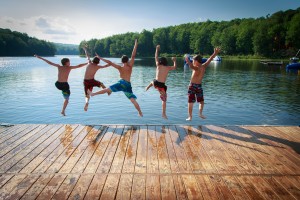
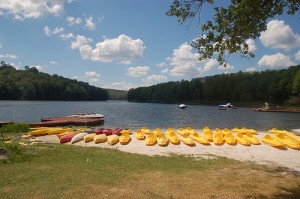


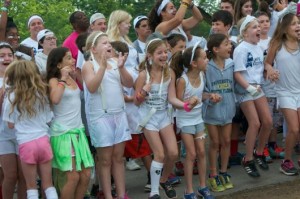
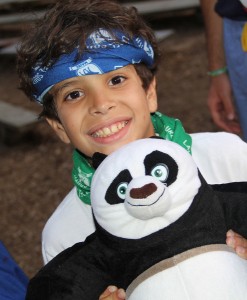
 Spirit. Speaking of spirit, it goes way beyond showing support for a team at summer camp. Camp spirit is all about demonstrating why your camp is the best camp—all day, every day. Every camper and staff member comes to camp prepared with sufficient clothing in camp colors. It is perfectly acceptable to paint your entire body camp colors in a show of spirit, and temporary tattoos with the camp logo or colors are pretty much standard at every camp activity.
Spirit. Speaking of spirit, it goes way beyond showing support for a team at summer camp. Camp spirit is all about demonstrating why your camp is the best camp—all day, every day. Every camper and staff member comes to camp prepared with sufficient clothing in camp colors. It is perfectly acceptable to paint your entire body camp colors in a show of spirit, and temporary tattoos with the camp logo or colors are pretty much standard at every camp activity.
 Chances are, they spend the majority of their time bickering over who gets to be in control of the remote, or, while traveling on your family vacation, you constantly hear the infamous “Mom, he/she won’t stop staring at me!” It’s no secret that siblings can get on each other’s nerves while spending 24/7 living under the same roof, but while at camp something about their attitudes changes.
Chances are, they spend the majority of their time bickering over who gets to be in control of the remote, or, while traveling on your family vacation, you constantly hear the infamous “Mom, he/she won’t stop staring at me!” It’s no secret that siblings can get on each other’s nerves while spending 24/7 living under the same roof, but while at camp something about their attitudes changes.
